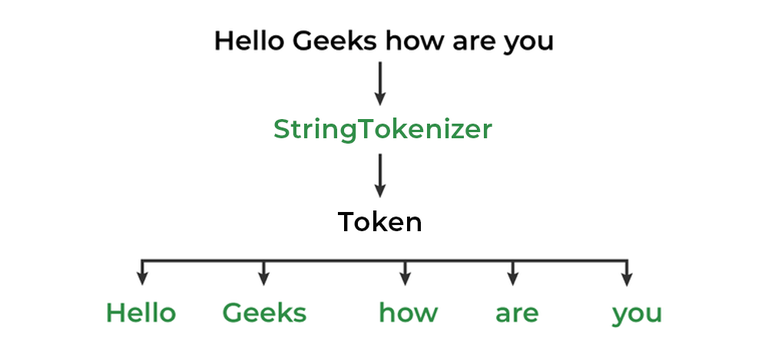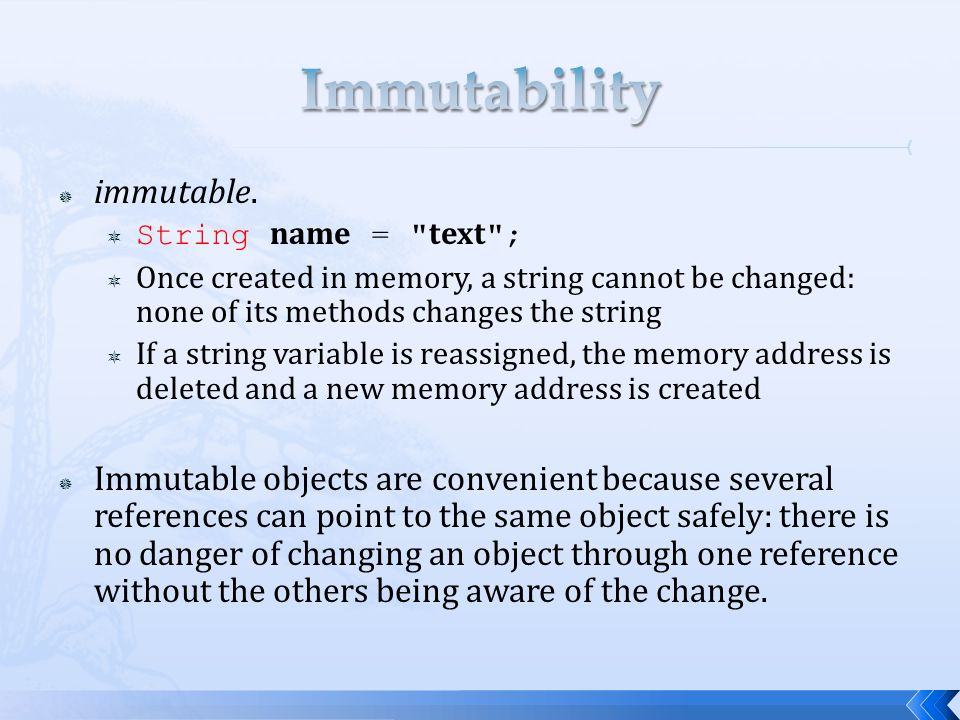Why Are Strings Immutable in Java? Enhancing Code Dependability
Why Are Strings Immutable in Java? Enhancing Code Dependability
Blog Article
Unalterable Strings: A Trick Element in Ensuring Information Uniformity and Dependability
In the realm of information management, the relevance of immutable strings can not be overemphasized. The concept of unalterable strings goes beyond plain triviality; it is a linchpin in the complex web of data administration.
The Concept of Immutable Strings
Immutable strings, an essential idea in programs, describe strings that can not be changed once they are produced. Essentially, as soon as a string value is assigned, any type of procedure that shows up to change the string really produces a new string. This immutability makes sure information uniformity and integrity in applications, as it prevents unexpected modifications to the initial data.
Advantages in Information Uniformity

Information consistency is vital in different aspects of software growth, including database administration, multi-threaded environments, and dispersed systems (Why are strings immutable in Java?). Immutable strings add considerably to accomplishing this consistency by preventing information corruption as a result of concurrent access. In circumstances where numerous procedures or threads connect with the exact same information all at once, unalterable strings serve as a safeguard versus race conditions and synchronization problems
Furthermore, the immutability of strings streamlines debugging and testing procedures. With unalterable strings, designers can trust that as soon as a string is set, it will certainly continue to be the same, making it much easier to map the source of mistakes and guaranteeing that test instances generate constant results. This reliability in data taking care of inevitably causes more durable and secure applications.

Implementing Immutable Strings
Making sure the immutability of strings needs a thoughtful technique to their application in software application growth. When a string item is created, one vital strategy is to create string courses in a method that stops modifications. By making strings immutable, developers can enhance data uniformity and reliability in their applications.
To implement unalterable strings effectively, developers must favor producing new string objects rather than changing existing ones. This practice ensures that once a string is appointed a worth, it can not be changed. Additionally, any operation that shows up to modify the string must develop a new string with the wanted adjustments rather of modifying the original.
Additionally, using immutable strings can streamline concurrency administration in multi-threaded atmospheres. Considering that unalterable strings can not be altered after creation, they can be securely shared amongst several strings without the threat of information corruption.
Function in Reliability Guarantee
In software development, the usage of unalterable strings plays an important function in making sure the integrity of information procedures. Immutable strings, once produced, can get redirected here not be customized, ensuring that the information they stand for stays consistent throughout the application's execution. This immutability residential or commercial property provides a degree of assurance that the information being processed will not be accidentally changed, bring about unanticipated results or mistakes in the system.
By including unalterable strings right into software program layout, designers can improve the integrity of their applications by minimizing the threats related to mutable data - Why are strings immutable in Java?. Unalterable strings help in preventing information corruption or unintentional alterations, which can be specifically critical when managing delicate details or when information integrity is critical
Furthermore, the usage of unalterable strings simplifies concurrent processing, as several strings can securely accessibility and share string information without the risk of one string modifying the web content while an additional reads it. This element adds substantially to the general integrity of the software application system, guaranteeing foreseeable and consistent behavior in data handling procedures.
Applications and System Integration
The seamless combination of unalterable strings into different applications and systems is pivotal for ensuring durable data uniformity and integrity throughout diverse technical settings - Why are strings immutable in Java?. Immutable strings play an important function in improving the integrity of information exchanges and communications within facility software application communities. By incorporating unalterable strings right into applications, programmers can minimize the dangers connected with data tampering, unapproved adjustments, and unintentional modifications, consequently strengthening the total protection position of the system
Immutable strings can improve interoperability in between inconsonant systems by giving a standardized layout for data depiction, making it possible for extra reliable data processing and exchange procedures across interconnected platforms. By adopting immutable strings in applications and system assimilation procedures, companies can fortify their data facilities and maintain the reliability and consistency of their info possessions.
Conclusion
In verdict, immutable strings play a view it vital function in preserving information uniformity and dependability in numerous applications and system integrations. By making certain that strings can not be changed when created, the integrity of data is preserved, decreasing the risk of incongruities and errors. Implementing unalterable strings can substantially enhance the integrity of systems, inevitably resulting in more reputable and exact information processing.

Report this page